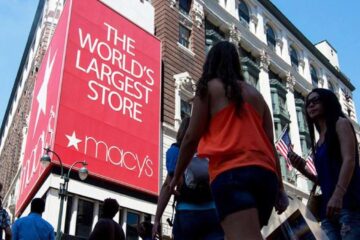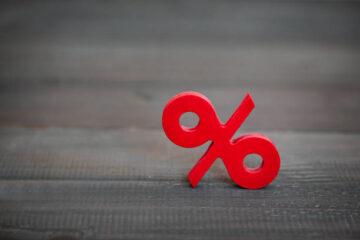Tesla increased hiring as tech companies began layoffs in the fall.
Tesla (TSLA) – Get Free Report ramped up its hiring in 2022 while major tech companies laid off employees to cut back on costs.
Starting in November, a myriad of tech companies consolidated with a wave of layoffs, including Alphabet (GOOGL) – Get Free Report, Salesforce (CRM) – Get Free Report, Meta Platforms (META) – Get Free Report Microsoft (MSFT) – Get Free Report and Amazon (AMZN) – Get Free Report. The massive job cuts in the sector reflect expectations that revenue growth will slow as the economy contracts.
Tesla, meanwhile, increased its headcount by 29%. The electric vehicle manufacturer employed 127,855 people, a 29,000 year-over-year increase, according to a Securities and Exchange Commission filing.
Tesla touted its benefit of giving employees “equity during their employment,” the filing said.
“Our greatest asset is our people and we continue to attract the best and brightest with our competitive pay and benefits package which starts with ownership.”
Apple is the only big tech company that has not cut its workforce.
Alphabet’s Google cut 12,000 employees globally. Amazon plans to shrink its workforce by 18,000 while Microsoft cut 10,000 employees. Meta eliminated 11,000 people, or 13% of its headcount, in November.
Tech stocks took a beating last year. Tesla’s shares fell by 44.85% during the past year.
Meta, parent of Facebook and Instagram, lost 56% of its market capitalization. Investors sold off their shares as fears of a potential recession persist amid a higher interest rate environment.
Apple did not go on a hiring spree during the past two years — unlike other tech giants. Microsoft, by comparison, hired about 75,000 people since 2019.
Apple’s staff grew by 10,000 people through September 2022, the end of its fiscal year. The addition brought its headcount to 164,000, including corporate staff and employees at its brick-and-mortar stores.
Tesla Still Faces Scrutiny
Tesla faces scrutiny from the Department of Justice, which requested more information on its autopilot and full-self driving feature.
Tesla says that it is not being investigated by any government agency currently, according to a U.S. Securities and Exchange Commission filing that the company disclosed on Jan. 31.
“To our knowledge no government agency in any ongoing investigation has concluded that any wrongdoing occurred,” the company wrote in the 10-K filing.
Shares of Tesla rose by at least 3.3% on Tuesday.
CEO Elon Musk’s claims about the technology and how it works is being investigated by the SEC, according to a report from Bloomberg on Jan. 27.
Profit Margins Could Be Impacted From Investigation
Tesla also said a government investigation could impact its profit margins.
“We cannot predict the outcome or impact of any ongoing matters,” according to the filing. “Should the government decide to pursue an enforcement action, there exists the possibility of a material adverse impact on our business, results of operation, prospects, cash flows and financial position.”
Depending on the outcome of a potential regulatory ruling, Tesla would also face “various other legal proceedings and claims that arise from the normal course of business activities,” the SEC filing said. “If an unfavorable ruling or development were to occur, there exists the possibility of a material adverse impact on our business, results of operations, prospects, cash flows, financial position and brand.”
A year ago Musk renewed his oft-repeated promise that Tesla’s EVs would be self-driving by year’s end.
“I would be shocked if we do not achieve full-self-driving safer than a human this year. I would be shocked,” Musk said during Tesla’s fourth-quarter-earnings call last July.
He emphasized: “Being safer than a human is a low standard, not a high standard. People are often distracted, tired, texting. … It’s remarkable that we don’t have more accidents.”
But FSD does not make Tesla cars autonomous: “All Tesla cars require active driver supervision and are not autonomous,” the carmaker says on its website.
Analysts have been wary of Tesla’s promise to deliver self-driving vehicles.
“We continue to view Tesla efforts in AV/robotaxi as ‘show me,'” Credit Suisse analyst Dan Levy wrote in a note to clients.
Regulators Investigate Autopilot
Autopilot has been subject to a multitude of investigations by regulators.
The National Highway Traffic Safety Administration is investigating 37 crashes involving automated driving systems since 2016. Of those, 30 involved Teslas, including 11 fatal crashes that have killed a total of 15 people.
The agency also said in documents that it’s investigating a fatal pedestrian crash in California involving a Tesla Model 3 in July.
NHTSA recently launched an investigation into a July 6 incident that killed two occupants of a 2015 Tesla Model S along Interstate 75 in Florida, a person familiar with the matter told TheStreet on July 11.
The newly confirmed NHTSA administrator, Steven Cliff, told the Associated Press that Tesla has been cooperative with NHTSA.
“I think we work well with them,” the head of the watchdog agency told AP, “and when we have identified that there are risks, they’ve taken action, and that’s appropriate.”
In June, the federal agency released data from automakers and tech companies showing nearly 400 crashes over a 10-month period involving vehicles with partly automated driver-assist systems, including 273 with Teslas.
Last July, Tesla’s top artificial-intelligence executive resigned from the Austin company after taking a four-month sabbatical.
“It’s been a great pleasure to help Tesla towards its goals over the last 5 years and a difficult decision to part ways,” Andrej Karpathy, who joined Tesla in 2017, said on Twitter on July 13. “In that time, Autopilot graduated from lane keeping to city streets and I look forward to seeing the exceptionally strong Autopilot team continue that momentum.”
“I have no concrete plans for what’s next but look to spend more time revisiting my long-term passions around technical work in AI, open source and education,” he said.


